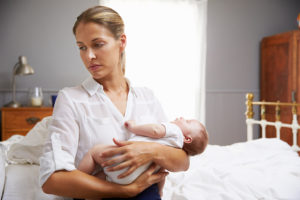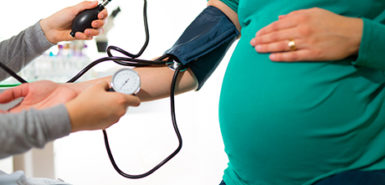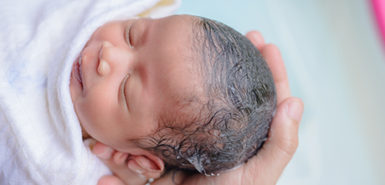
If you’ve experienced depression, it may help to know you aren’t alone.
More than 16 million people experience at least one major depressive episode at some point during the year, according to the National Institute of Mental Health.
The positive angle on this: We know of many things that can help fight depression, including therapy, exercise and medication.
Sometimes the treatment depends on the circumstances.
Depression after having a baby, known as postpartum depression, is more common than people may realize.
About 15 to 20 percent of women in the U.S. experience major depression after having a baby. This type of depression is different from the more common baby blues, which about 80 percent of new mothers will experience.
Baby blues pertains to hormonal changes from having a baby, as well as lack of sleep with a new baby and a new role that comes with new pressures and other circumstances.
Some people are surprised to learn that dads can also get baby blues and depression.
Postpartum depression in moms, however, is more extreme and can interfere with a woman’s ability to care for herself and her family. Severe symptoms usually require treatment.
Over time, we have come to realize that postpartum depression can happen quite often. Many moms will suffer in silence, however, because they don’t know what signs to look for or they don’t know what to do about it even when they know what’s happening.
This is one of the reasons the American College of Obstetricians and Gynecologists is recommending earlier postpartum visits after birth.
I should also point out that women can also suffer from depression during pregnancy, not just afterward. An estimated 14 to 23 percent of pregnant women will struggle with depression, according to the American College of Obstetricians and Gynecologists.
While it may seem reasonable to assume this depression results from a pregnant mom’s changes in hormones, this is only partly true.
Depression in pregnancy can also be triggered by an unplanned pregnancy, partner violence, a previous pregnancy loss, relationship issues and more.
Some of the symptoms to watch for:
- Thoughts of death or suicide
- Sleeping too little or too much
- Sadness that won’t go away
- Inability to concentrate
- Loss of interest in things you once enjoyed
- Anxiety beyond what might be considered a normal amount
- Feelings of guilt
- No desire to eat or eating all the time
- Extra stress
Some of these symptoms are normal with pregnancy, so it’s important to remember that you need to watch for extremes.
Make sure you talk with your OB provider if you’re worried about depression or anxiety during pregnancy.
A study published earlier this year in JAMA Pediatrics found evidence suggesting that depression during pregnancy could result in poorer emotional and behavioral outcomes in children.
Of 101 pregnant moms surveyed for the study, 42 met the criteria for mild depression. Researchers then took MRIs of each baby’s brain at 1 month of age.
“Our study suggests that moderate levels of maternal depression and anxiety symptoms during pregnancy were associated with variations in the brain’s white matter microstructure or ‘wiring’ at one month of age,” said lead author Douglas Dean III, of the University of Wisconsin-Madison.
Up to 1 in 5 pregnant women experience depression and anxiety, according to the report, adding: “Mounting evidence links these conditions with poorer emotional and behavioral outcomes in children.”
Other studies, meanwhile, have found that untreated depression during pregnancy is linked to lower baby weight at birth.
Bottom line: If you are pregnant and feeling symptoms of depression or anxiety, please talk to your OB provider.
 /a>
/a>
 /a>
/a>
 /a>
/a>
Very important information! Thanks for sharing this!
It is so important for Moms (and Dads) to speak up and let others know how they are feeling, so they can get the help they deserve.